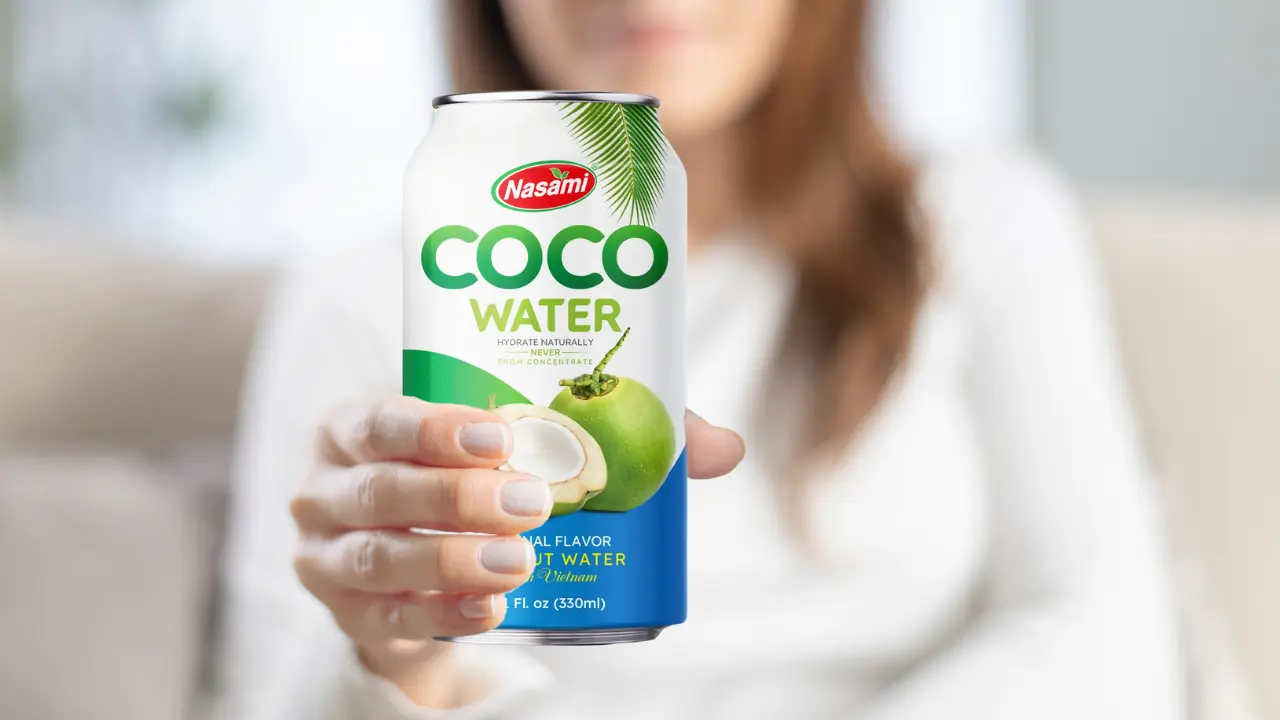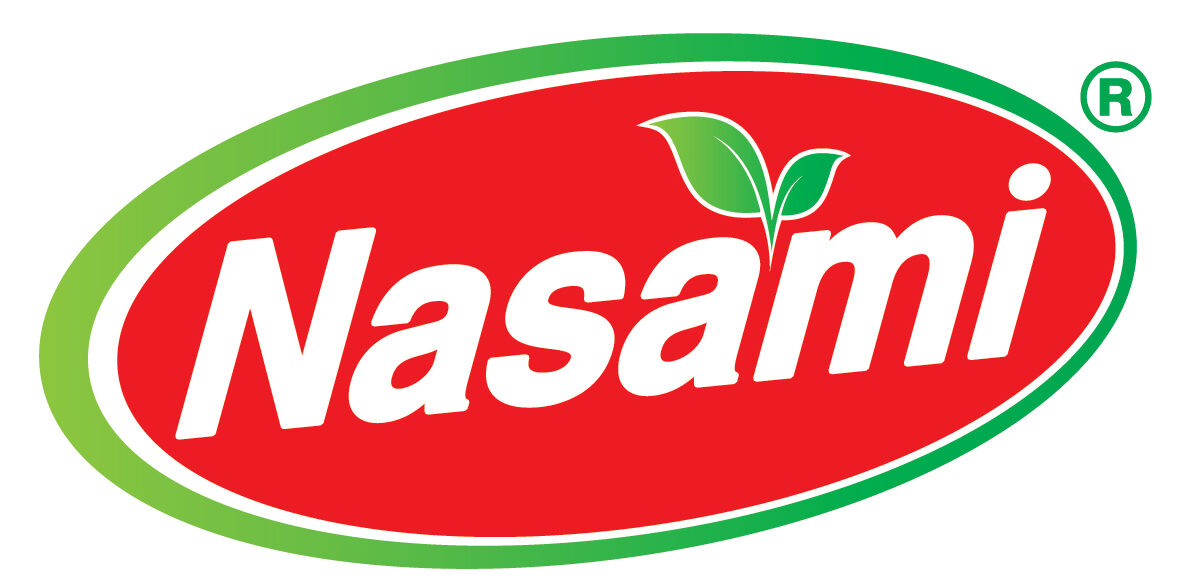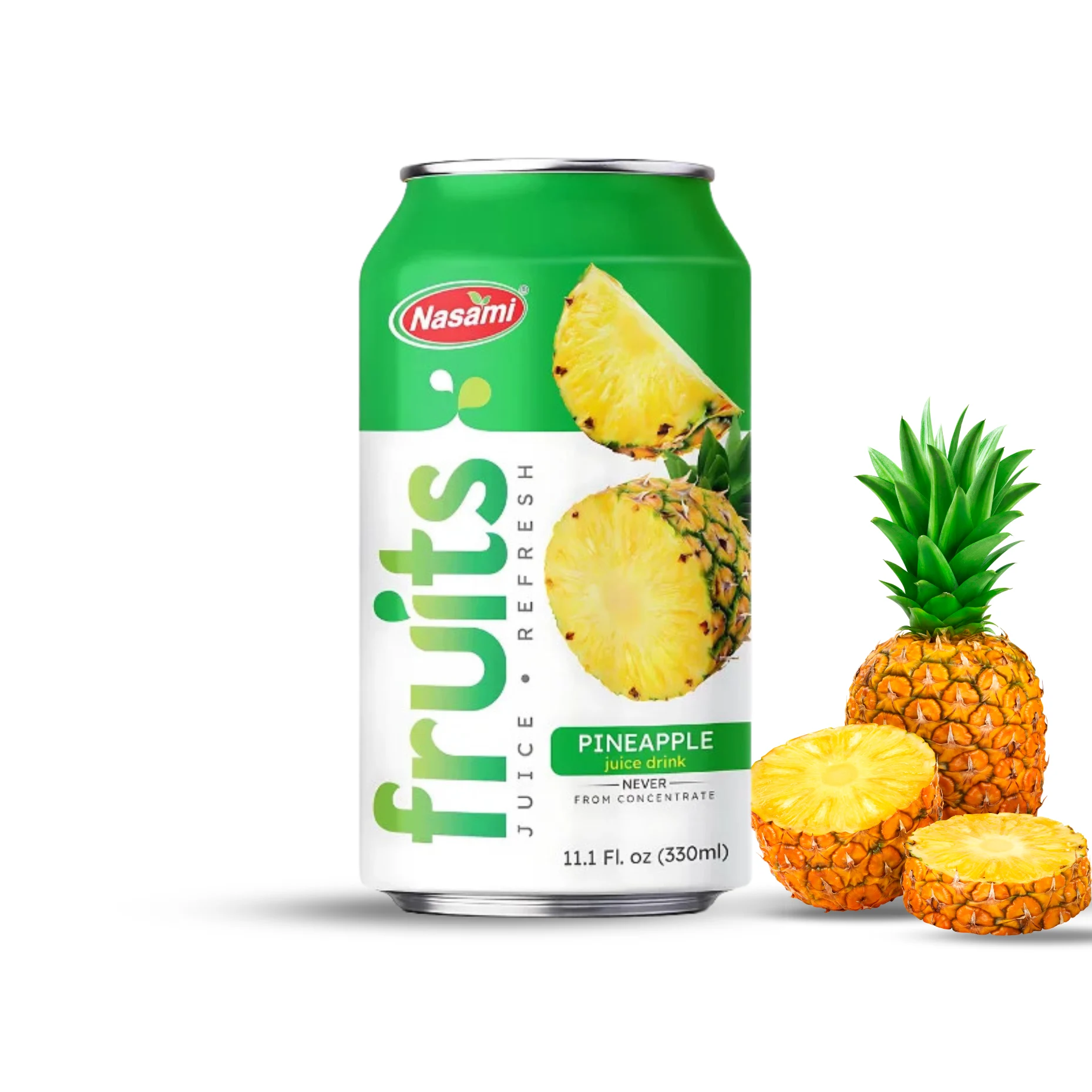Can I Drink Coconut Water While Fasting? In recent years, fasting has surged in popularity as a method for weight loss, improved metabolic health, and even mental clarity. As more people embrace various fasting protocols, from intermittent to prolonged fasting, the quest to maintain proper hydration and nutrition during these periods has become increasingly important.
Table of Content
ToggleOne common question in this context is whether drinking coconut water while fasting is permissible. This article explores whether drinking coconut water during fasting is allowed and beneficial, examining its impact on the fasting process and overall health.
Understanding Fasting – Can I Drink Coconut Water While Fasting?
Definition and Types of Fasting
Fasting, a practice that has been part of various cultural and religious traditions for centuries, is now widely recognized for its potential health benefits. At its core, fasting involves abstaining from all or some types of food and drink for a set period. In recent years, it has gained traction as a strategy for weight management, metabolic health, and even mental clarity. To understand whether coconut water fits into a fasting regimen, it’s essential to grasp the different types of fasting.
Intermittent Fasting
One of the most popular fasting methods today is intermittent fasting, which alternates between periods of eating and fasting. Common schedules include:
- 16/8 Method: Involves fasting for 16 hours and eating within an 8-hour window. For instance, one might eat from 12 p.m. to 8 p.m. and fast from 8 p.m. to 12 p.m. the next day.
- 5:2 Method: Involves eating normally for five days of the week and restricting calorie intake to around 500-600 calories on two non-consecutive days.
Intermittent fasting focuses on the timing of food intake rather than the type of food consumed, which means that during the fasting periods, one must be cautious about what is consumed to avoid breaking the fast.
Extended Fasting
Extended fasting goes beyond the daily or weekly schedule and involves longer fasting periods, such as:
- 24-Hour Fasts: Typically consists of fasting for 24 hours once or twice a week. For example, one might eat dinner at 7 p.m. and then not eat again until 7 p.m. the following day.
- Multi-Day Fasts: Avoiding food for several days, often under medical supervision. These fasts can last anywhere from 48 hours to a week or more.
Extended fasting requires more careful consideration, as the duration of abstinence from food is longer and can have more significant impacts on the body. Hydration and electrolyte balance become crucial in these scenarios. Understanding these fasting methods is key to determining how coconut water fits into your fasting regimen.
Goals and Benefits of Fasting
Fasting is often pursued for a variety of reasons, each tied to specific health goals and benefits. Understanding these goals can help determine whether drinking coconut water is compatible with your fasting regimen.

Weight Loss
One of the most common reasons people choose to fast is for weight loss. By restricting the period during which food is consumed, intermittent fasting can help reduce overall calorie intake. During extended fasts, the body uses stored fat as its primary energy source, which can lead to weight loss. However, the impact of any beverage consumed during fasting, including coconut water, must be considered as it can influence calorie intake and affect the fasting process.
Metabolic Health
Fasting is also praised for its potential benefits to metabolic health. It can help improve insulin sensitivity, regulate blood sugar levels, and support overall metabolic function. These benefits stem from periods of fasting allowing the body to reset and optimize its metabolic processes. Since coconut water contains natural sugars and calories, its consumption during fasting could potentially impact these metabolic benefits if not carefully monitored.
Cellular Repair and Longevity
Another significant benefit of fasting is its role in cellular repair and longevity. Fasting initiates autophagy, a process where cells remove damaged components and regenerate, potentially contributing to increased lifespan and reduced risk of chronic diseases. The benefits of autophagy are typically maximized during periods of complete fasting, so consuming coconut water, which contains nutrients and electrolytes, may interfere with the fasting state and the full extent of these regenerative processes.
Nutritional Profile Coconut Water
Coconut water, often hailed as a natural sports drink, is a popular choice for hydration due to its unique nutritional profile. It contains:
- Electrolytes: Coconut water is rich in essential electrolytes such as potassium, sodium, and magnesium. Potassium helps maintain fluid balance and support muscle function, while sodium and magnesium are crucial for maintaining electrolyte balance and overall hydration.
- Low Calorie and Low Sugar Content: With a relatively low-calorie count (approximately 46 calories per cup) and modest sugar content, coconut water is a lighter alternative to many other beverages. This makes it an attractive option for those who are mindful of their caloric intake during fasting periods.
Health Benefits
Coconut water offers several health benefits that make it a popular choice for hydration:
- Hydration: Due to its high electrolyte content, coconut water is effective in replenishing fluids and maintaining hydration. It is often recommended as a natural alternative to sugary sports drinks, which can be high in calories and artificial ingredients.
- Electrolyte Balance: The balance of potassium, sodium, and magnesium in coconut water can help restore electrolyte levels, particularly after intense physical activity or during periods of dehydration. This can be particularly beneficial if fasting involves physical exertion or if you’re prone to dehydration.
- Potential for Improved Exercise Recovery: For those who engage in regular physical activity, coconut water can aid in post-exercise recovery by rehydrating the body and replenishing lost electrolytes. This benefit can be relevant if your fasting regimen includes exercise or if you break your fast with physical activity.

Considerations for Fasting
While coconut water offers valuable hydration and electrolyte benefits, it’s important to consider its impact on fasting:
- Calories and Sugars: Although relatively low in calories and sugars compared to many beverages, coconut water still contains some calories and natural sugars. During fasting, even small amounts of calories can potentially impact the fasting state, particularly in strict fasting protocols.
- Breaking the Fast: Consuming coconut water could potentially break the fast if the goal is to maintain a complete absence of caloric intake. For intermittent fasting, where minimal caloric intake may be permitted, it could be acceptable in small amounts, but it’s essential to adhere to the specific guidelines of your fasting method.
Coconut Water and Fasting
Can You Drink Coconut Water While Fasting?
When it comes to fasting, whether intermittent or extended, the inclusion of any beverage like coconut water must be carefully considered to avoid disrupting the fasting process.
Intermittent Fasting: How Coconut Water Fits into an Eating Window vs. Fasting Period
During intermittent fasting (e.g., 16/8 or 5:2), you have specific periods where you are allowed to eat and drink, and times when you are fasting. Coconut water can fit into these guidelines in the following ways:
- Eating Window: If consumed during the eating window, coconut water is generally acceptable. It provides hydration and electrolytes without significantly impacting calorie intake if consumed in moderation.
- Fasting Period: Drinking coconut water during the fasting period can be more problematic. Despite its low-calorie content, it still contains natural sugars and calories that might affect insulin levels and break the fast. For those strictly adhering to fasting protocols that require zero calorie intake, it’s best to avoid coconut water during fasting periods.
Extended Fasting: Potential Impacts on Metabolic State and Ketosis
In the case of extended fasting, which involves longer periods without food, the impact of coconut water can be more pronounced:
- Metabolic State: Extended fasting aims to induce significant metabolic shifts such as ketosis, where the body burns fat for fuel instead of glucose. Coconut water, though low in calories, contains natural sugars that could potentially disrupt this state by providing a small amount of glucose, thereby affecting the body’s ability to maintain ketosis.
- Impact on Ketosis: For those pursuing ketogenic diets or aiming to stay in ketosis during extended fasts, consuming coconut water may impact ketosis. Even though the effect might be minimal, it could still influence the body’s fat-burning processes.
Comparison with Other Beverages
When evaluating coconut water’s suitability for fasting, it helps to compare it with other common beverages:
- Water: Plain water is the most fasting-friendly beverage. It contains no calories or sugars, making it ideal for maintaining hydration without affecting the fasting state.
- Herbal Teas: Herbal teas (without added sugars or milk) are generally acceptable during fasting. They provide hydration and can offer various health benefits without breaking the fast.
- Electrolyte Drinks: Many electrolyte drinks are designed to support hydration and replenish electrolytes but often contain calories and sugars. Compared to coconut water, these drinks might have a higher impact on calorie and sugar intake, potentially disrupting fasting goals.
Potential Benefits of Drinking Coconut Water During Fasting

Hydration and Electrolyte Balance
Importance of Maintaining Fluid Balance
During fasting, especially extended fasting periods, maintaining proper hydration is crucial. The body loses fluids and electrolytes through various processes, including sweat and urine. Adequate hydration helps ensure that bodily functions continue smoothly and supports overall health.
Coconut Water’s Role in Preventing Dehydration
Coconut water can be beneficial in this regard due to its rich electrolyte content. It provides essential electrolytes such as potassium, sodium, and magnesium, which are vital for maintaining fluid balance and preventing dehydration. For those who are fasting and experience dehydration symptoms, such as dizziness or fatigue, coconut water can help replenish lost electrolytes and support better hydration, making the fasting experience more comfortable.
Satiety and Energy Levels
Managing Hunger and Energy During Fasting
One challenge of fasting is managing hunger and maintaining energy levels, particularly during longer fasting periods. Many people struggle with feelings of fatigue or irritability due to low energy and prolonged hunger.
Coconut Water’s Impact on Hunger Levels and Fasting Comfort
Coconut water, while low in calories, can have a minor impact on satiety. It provides a small amount of natural sugars and hydration, which might help mitigate feelings of hunger and improve comfort during fasting. This can be particularly helpful if consumed during the eating window or if you need a slight boost in energy. However, it’s important to note that while coconut water can offer some relief, it is not a substitute for the essential nutrients and calories needed during eating periods.
Potential Drawbacks and Considerations
Caloric and Sugar Content
How Coconut Water’s Minimal Calories and Sugars Might Impact Fasting Goals
Coconut water, while relatively low in calories and natural sugars compared to many beverages, still contains some calories (approximately 46 calories per cup) and natural sugars. During fasting, especially strict fasting protocols, even minimal caloric and sugar intake can potentially impact fasting goals. For instance, the consumption of coconut water could:
- Break the Fast: For those adhering to a strict fasting regimen where any calorie intake is avoided, the small amount of calories and sugars in coconut water might break the fast, potentially affecting the desired outcomes like autophagy or metabolic reset.
- Affect Caloric Intake: If consumed frequently, the calories and sugars can add up, which may be counterproductive to weight loss or metabolic goals. This is particularly relevant if you’re monitoring or restricting calorie intake carefully.
Get information about all products of Nasami Beverages.
Individual Responses
Variability in How Different Bodies Respond to Coconut Water During Fasting
Individual responses to coconut water during fasting can vary widely:
- Metabolic Differences: People have different metabolic rates and sensitivities to insulin. Some might find that even small amounts of calories or sugars can impact their fasting benefits, while others might not experience noticeable effects.
- Tolerance Levels: Factors such as personal health conditions, metabolic goals, and overall fasting regimen can influence how coconut water is tolerated. For example, someone with diabetes or insulin resistance might need to be more cautious about any sugar intake, including from coconut water.
Impact on Ketosis
How Coconut Water Might Affect Those Aiming for a Ketogenic State
For individuals following a ketogenic diet and aiming to maintain a state of ketosis, the consumption of coconut water needs to be carefully considered:
- Ketosis Disruption: Ketosis relies on minimizing carbohydrate intake to ensure the body remains fat-burning. Coconut water contains natural sugars, which can contribute to carbohydrate intake and potentially disrupt ketosis. Even though the sugar content is relatively low, it may still affect those who are strictly monitoring their carbohydrate consumption.
- Alternative Hydration Options: If maintaining ketosis is a priority, it might be better to opt for beverages that contain no carbohydrates or sugars, such as plain water or unsweetened herbal teas, to ensure that the ketogenic state is not compromised.
Expert Opinions and Research
Health Professional Insights

To provide a balanced perspective on whether you can drink coconut water while fasting, it’s valuable to consider insights from health professionals such as nutritionists and dietitians:
- Dr. Sarah Williams, Nutritionist: “Coconut water is a great source of hydration and essential electrolytes. For those practicing intermittent fasting, drinking coconut water during the eating window can be beneficial. However, during fasting periods, even small amounts of calories and sugars could potentially interfere with the fasting state. It’s important to align your beverage choices with your specific fasting goals and protocols.”
- Jane Smith, Registered Dietitian: “When it comes to extended fasting, maintaining hydration is crucial. Coconut water can help replenish electrolytes lost during prolonged periods without food. Nevertheless, individuals aiming for a strict fast or those pursuing ketosis should be cautious, as the natural sugars in coconut water may disrupt their fasting objectives.”
Scientific Studies
Scientific research provides additional context on how coconut water interacts with fasting and hydration:
- Hydration and Electrolyte Balance: A study published in the Journal of the International Society of Sports Nutrition highlighted that coconut water is effective in rehydrating the body and restoring electrolyte balance after exercise, comparable to commercial sports drinks. This supports its use for hydration, but the study does not specifically address its impact during fasting.
- Impact on Fasting: Research in Cell Metabolism on fasting and metabolic states suggests that even small amounts of calories and sugars can influence metabolic processes. While coconut water has fewer calories compared to many other beverages, its impact on fasting can depend on the strictness of the fasting protocol. This means that while it may be acceptable in less stringent fasting regimens, it might affect outcomes in stricter ones.
- Ketosis and Sugar Intake: A review article in Nutrients discusses how even minimal sugar intake can impact ketosis. Although coconut water contains a relatively small amount of sugar, it may still affect those on a ketogenic diet by potentially disrupting their state of ketosis. This highlights the importance of monitoring carbohydrate and sugar intake closely for those adhering to strict ketogenic protocols.
Practical Tips
Choosing the Right Coconut Water
When selecting coconut water to drink during fasting or otherwise, it’s essential to choose a product that aligns with your health goals and fasting needs:
- Look for 100% Pure Coconut Water: Ensure that the coconut water you choose is labeled as 100% pure coconut water. Avoid products with added sugars, artificial flavors, or preservatives, as these can introduce unnecessary calories and disrupt the fasting state. Pure coconut water should be free from any additives and offer the natural electrolytes your body needs.
- Check the Nutritional Label: Even among pure coconut water options, it’s beneficial to review the nutritional label to confirm that the product contains minimal calories and natural sugars. Some brands might add extra ingredients that could affect your fasting goals.
How to Incorporate Coconut Water
If you decide to include coconut water in your routine, consider the following best practices:
- Moderation is Key: Even when consuming coconut water during eating windows, moderation is important. Stick to a reasonable portion to avoid excessive calorie and sugar intake, which can counteract your fasting goals.
- Avoid During Fasting Periods: To maintain the integrity of your fasting period, it’s generally best to avoid coconut water during the fasting phase. Its natural sugars and calories, although minimal, could potentially disrupt the fasting process, particularly in more stringent fasting protocols.
Alternatives and Supplements
If you’re looking for ways to stay hydrated and balanced while fasting without using coconut water, consider these alternatives:
- Water: Plain water remains the best choice for staying hydrated during fasting. It contains no calories or sugars and will not interfere with the fasting state. Drinking plenty of water is crucial for maintaining hydration and overall health during fasting.
- Herbal Teas: Unsweetened herbal teas, such as chamomile or peppermint, can be a refreshing option. They are free of calories and sugars and can provide a soothing effect while keeping you hydrated.
- Electrolyte Supplements: For those concerned about electrolyte balance, consider electrolyte supplements that are free from sugars and calories. These can help maintain electrolyte levels without impacting your fasting goals.

Summary of Key Points
To wrap up our exploration of whether you can drink coconut water while fasting, here are the main takeaways:
- Nutritional Profile: Coconut water is low in calories and rich in electrolytes, making it a popular choice for hydration. However, it does contain natural sugars, which can influence fasting outcomes.
- Fasting Types:
- Intermittent Fasting: Coconut water can be consumed during your eating windows but should be avoided during fasting periods to maintain the integrity of the fast.
- Extended Fasting: During longer fasts, the natural sugars in coconut water could disrupt ketosis and other metabolic benefits associated with extended fasting.
- Expert Insights: Health professionals generally advise that while coconut water is excellent for hydration, it may not be suitable during fasting periods, particularly if you are aiming for strict fasting goals or a state of ketosis.
Final Recommendations
- For Intermittent Fasting: You can enjoy coconut water during your eating windows, but it’s best to consume it in moderation to avoid affecting your fasting goals.
- For Extended Fasting or Ketosis: Avoid coconut water during fasting periods to prevent any potential interference with ketosis or other fasting benefits. Stick to plain water or unsweetened herbal teas to stay hydrated.
- Health Conditions: If you have specific health concerns, such as diabetes or metabolic issues, consult with a healthcare professional. They can provide tailored advice on how even small amounts of calories or sugars might affect your fasting and overall health.
For a tailored approach to fasting and hydration, seek advice from healthcare professionals or dietitians who can offer personalized recommendations based on your individual health needs and fasting goals. Experiment with different hydration options and observe how they impact your fasting experience. Understanding your body’s response will help you achieve the best results from your fasting regimen and maintain your overall well-being.






